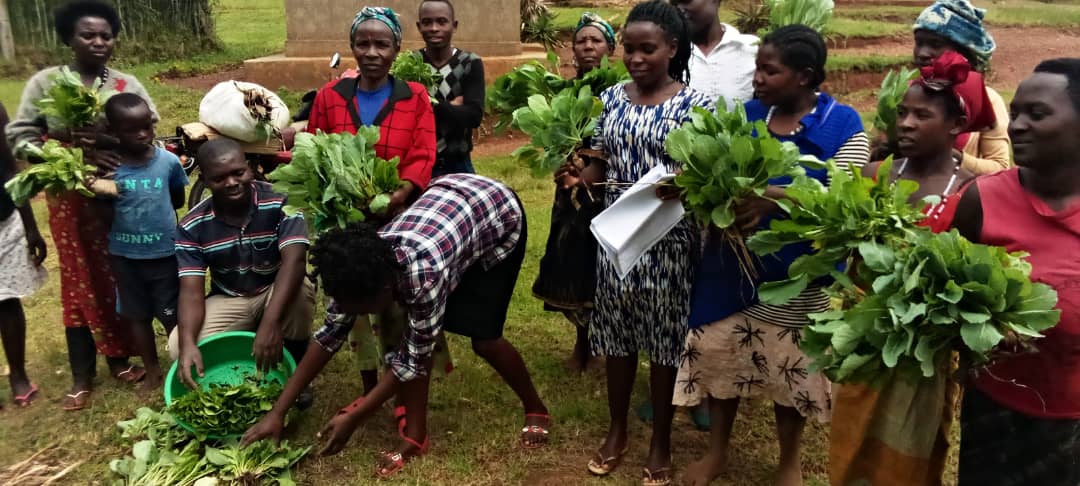Food and Nutrition Program

Hunger and malnutrition remain the leading threats to Women’s health. There are some women who will go to bed hungry tonight, and many more don’t know where their next meal will come from. Being hungry impacts everything in those Women’s lives. When they can’t cover this basic need, Women struggle to find a way out of poverty. It’s harder to take advantage of economic opportunities or get involved in community actions. Girls who are hungry don’t do as well in school — if they are able to go at all.
Babies who don’t get the right nutrition early in life may never reach their full potential as adults. Over the last three years, conflict and climate change have caused hunger to go up every year. Farmers struggle to grow the food they need to grow food for themselves, and to sell into markets for others to eat. If nothing is done millions of Women could be hungry by 2050. FROWI is focusing on the following;
a) Water+:
Linking water and nutrition, water and agriculture, and water and education. Water+ is about more than just handwashing and clean drinking water. Water+ is about linking water to other activities so that we can make the biggest impact possible. It is about water for agriculture, for livelihoods, for nutrition, for keeping girls in schools, for helping women to be leaders, for preventing disease outbreaks, and more. Water+ helps us achieve more with less and respond to the complicated needs of the women we work with. Water+ approaches mean that we work with others whenever possible. This means that we do not stop at ensuring wells and promoting soap, but also work on making sure that water services have good governance, maintenance and financing that will keep them going. We look at the connections between water and nutrition, water and agriculture, and water and education.
b) Agriculture:
FROWI programmes build on and are inspired by the vital roles that women play in smallholder agriculture: meeting the food needs of their households, contributing to the development and growth of livelihoods, and working toward sustainable futures for their households and communities. Beyond the resource gap, women farmers are routinely paid less than men for their agricultural labor; carry a disproportionate share of household workloads; are often excluded from agricultural decision-making; and are under-represented in agricultural organizations.
The net impact of these barriers is a systematic gap between women’s potential contributions to food security and household resilience and what they are able to achieve today. By failing to close the gender gap in agriculture, we shall pay dearly. FROWI’s programs build on and are inspired by the vital roles that women play in smallholder agriculture: meeting the food needs of their households, contributing to the development and growth of livelihoods, and working toward sustainable futures for their households and communities.
c) Markets:
People talk a lot about value chains within our economic development work — but what are they and why are they important? A value chain is the full range of activities, from production to marketing to distribution, that are required to bring a product from its conception to the consumer. FROWI promotes changes in value chains that generate positive, sustained impacts for large numbers of marginalized Women in terms of income, employment, power relations, and access to products and services that empower the poor to better their lives.
d) Nutrition:
FROWI focuses on reducing stunting because this reflects success on many fronts: food systems, health systems, education, WASH infrastructure, and safety nets, to name a few. Since stunting occurs during a child’s first 1,000 days – from conception through the second birthday – and essentially cannot be reversed, adequate growth and nutritional status is paramount. All of FROWI’s programming uses nutrition-sensitive approaches to provide the foundation for good nutrition. Some programs also focus on nutrition-specific approaches that address the immediate determinants of fetal and child nutrition and development. These programs focus on key home-based practices that produce good nutrition outcomes, encouraging social and behavior change strategies to prompt the adoption of these behaviors.